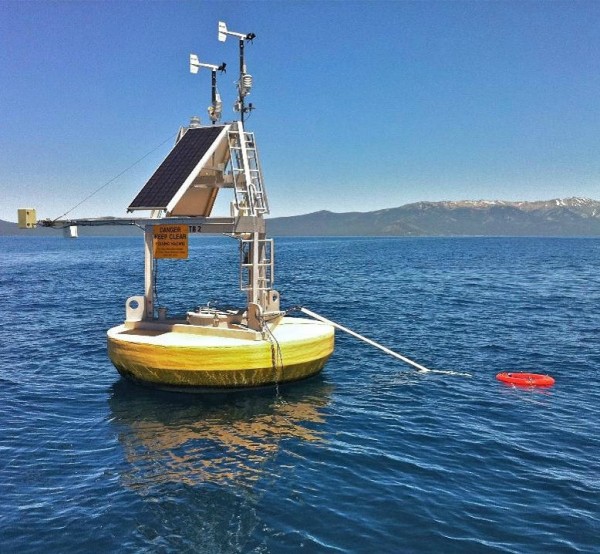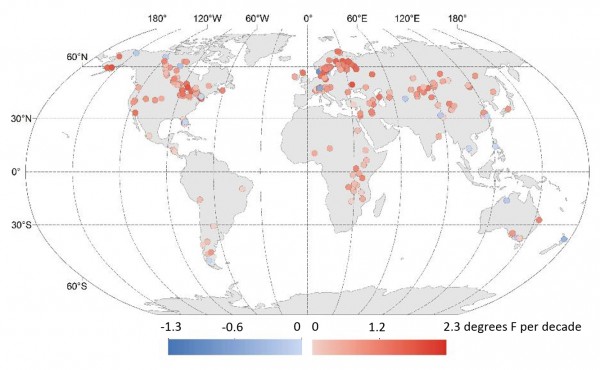
Image credit: Limnotech
Climate change is rapidly warming lakes around the world, threatening freshwater supplies and ecosystems. That’s according to new research published in Geophysical Research Letters and announced December 16, 2015 at the American Geophysical Union meeting in San Francisco.
Using more than 25 years of satellite temperature data and ground measurements of 235 lakes on six continents, the NASA and National Science Foundation-funded study found that lakes are warming an average of 0.61 degrees Fahrenheit (0.34 degrees Celsius) each decade. The scientists say this is greater than the warming rate of either the ocean or the atmosphere, and it can have profound effects.
As warming rates increase over the next century, the researchers say, algal blooms, which can rob water of oxygen, will likely increase 20 percent in lakes. Algal blooms that are toxic to fish and animals will likely increase by 5 percent. In addition, the researchers say, emissions of methane, a greenhouse gas 25 times more powerful than carbon dioxide on 100-year time scales, will increase 4 percent over the next decade, if the current warming rates continue.

Study co-author Stephanie Hampton is the director of Washington State University’s Center for Environmental Research, Education and Outreach in Pullman. She said:
Society depends on surface water for the vast majority of human uses. Not just for drinking water, but manufacturing, for energy production, for irrigation of our crops. Protein from freshwater fish is especially important in the developing world.
Water temperature influences a host of properties critical to the health and viability of ecosystems. When temperatures swing quickly and widely from the norm, life forms in a lake can change dramatically and even disappear.
The researchers said various climate factors are associated with the warming trend. In northern climates, lakes are losing their ice cover earlier in the spring and many areas of the world have less cloud cover, exposing their waters more to the sun’s warming rays.
The new study confirms earlier research showing that many lake temperatures were warming faster than air temperature and that the greatest warming was observed at high latitudes.
Warm-water tropical lakes may be seeing less dramatic temperature increases, but increased warming of these lakes still can have significant negative impacts on fish. That can be particularly important in the African Great Lakes, where fish are a major source of food. Hampton said:
We want to be careful that we don’t dismiss some of these lower rates of change. In warmer lakes, those temperature changes can be really important. They can be just as important as a higher rate of change in a cooler lake.
Bottom line: New research published in Geophysical Research Letters and announced December 16, 2015 at the American Geophysical Union meeting in San Francisco says that climate change is rapidly warming lakes around the world, threatening freshwater supplies and ecosystems.
Enjoying EarthSky? Sign up for our free daily newsletter today!











